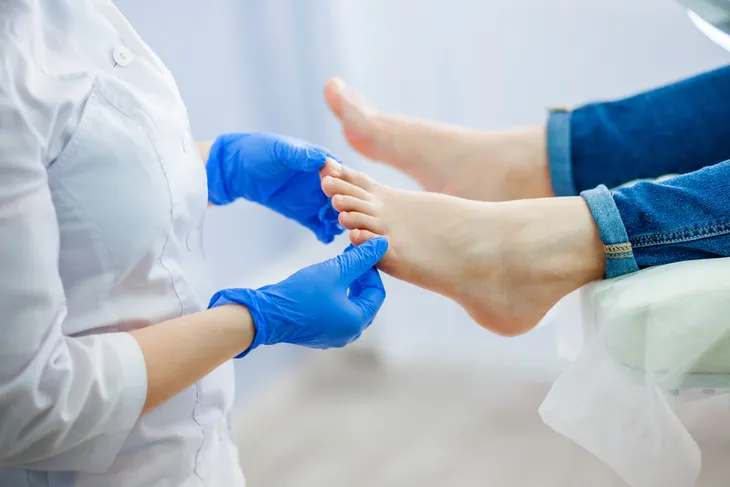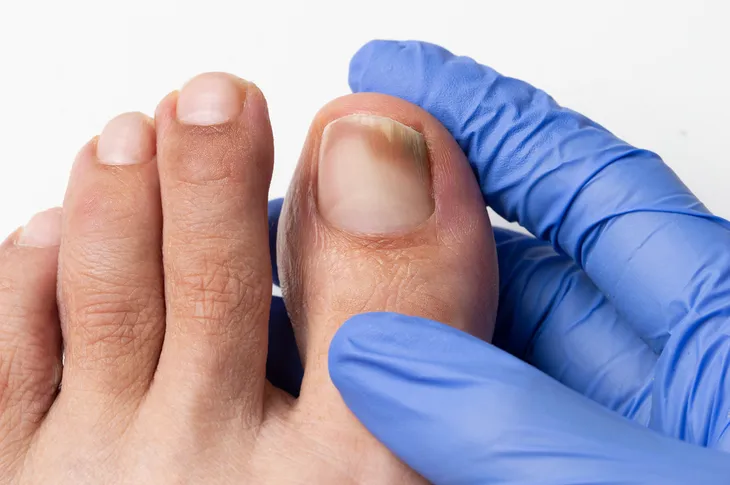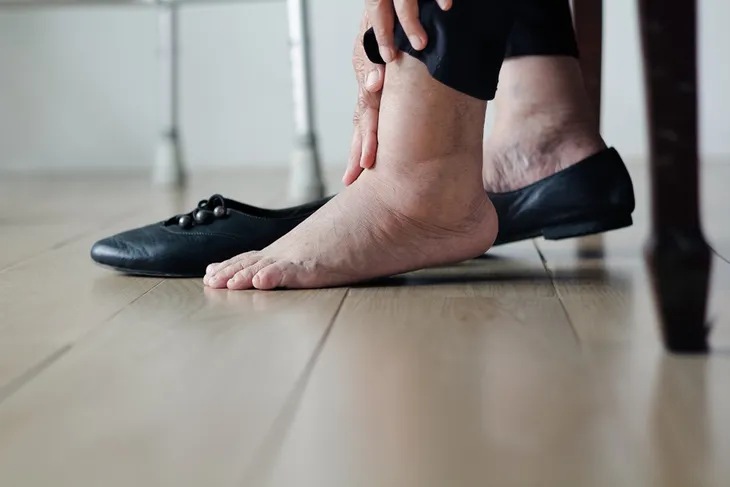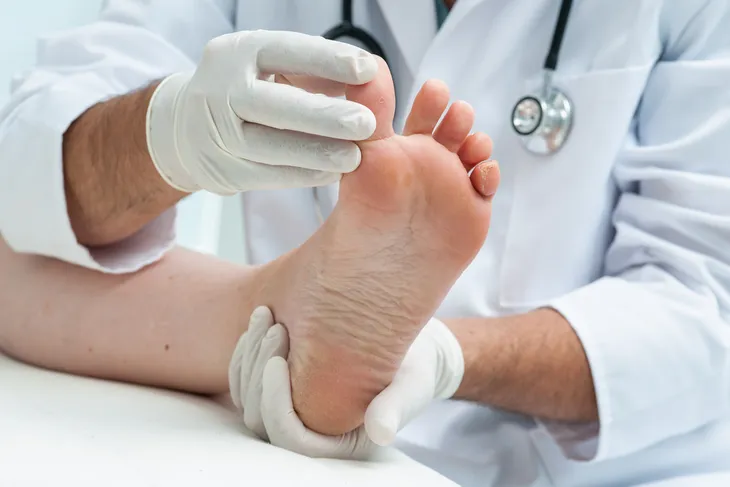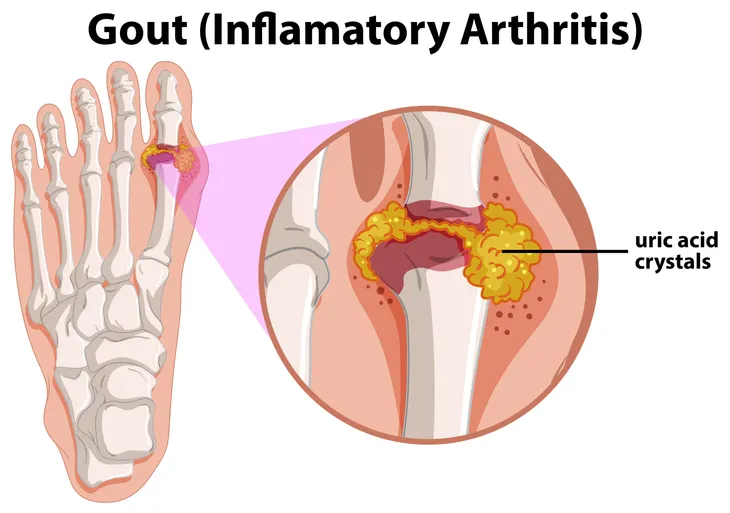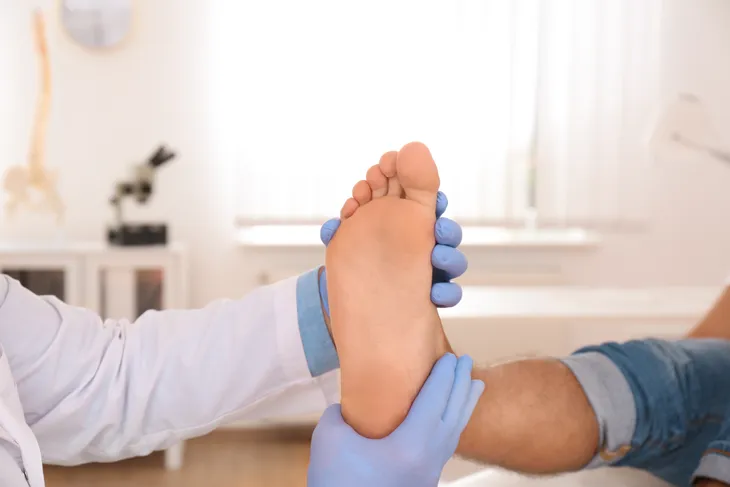There are no two ways about it, feet are tragically underappreciated. We rely on them for just about every task, beat up on them just about every day, and rarely pamper them. In fact, most of us rarely (if ever) spend any time at all checking in on their condition. It’s a real shame too because the condition of your feet truly can tell a lot about the overall health of your body.
Doctors get it. It’s not uncommon for a doctor to use the condition of a patient’s foot as a barometer of their general wellbeing. They know that somewhere in that collection of toes, nails, and tiny bones are hidden clues that can sometimes indicate much more serious problems.
Today, we’re going to take a look at what the condition of your feet are trying to tell you about your health, and why it’s probably a good idea for you to start listening to them.
Numbness
Persistent numbness in the foot may be a cause for concern. Don’t get us wrong, tingling and numbness can occur if you sleep in an awkward position or sit in one place for too long. This may not be a concern but it’s a problem when you experience numbness on a regular basis or when you’re active.
Numbness of the foot signifies poor blood flow, which can be a sign of type 2 diabetes or peripheral arterial disease. If you experience persistent numbness in one or both feet, contact your doctor.
Pain in the Morning
Foot pain first thing in the morning is your body’s way of telling you that something is amiss. Granted, this symptom may not be as loud of an alarm bell as some of the other ones on our list. It’s not as precise of a symptom either.
Experiencing foot aches in the morning could be a sign of arthritis, plantar fasciitis, or muscle cramps caused by dehydration or a lack of nutrients.
A Sore That Won’t Heal
Surface level injuries and sores on the feet should heal, or at least begin to heal, in a reasonable amount of time. Sometimes though, lesions on the foot take an exceedingly long time to heal.
If this sounds like you, consider reaching out to your doctor immediately. It very well could be nothing to worry about, but oftentimes ulcers on the foot that take forever to heal can be a sign of peripheral neuropathy and diabetes.
Hair Loss
Yes, toes can go bald too. It’s pretty common for men and women to have a little bit of visible hair on their toes. That’s not a symptom of anything. What is concerning is if you notice that the hair on your feet or toes gradually or suddenly goes missing.
Hair loss of the toes can be a sign of peripheral arterial disease (PAD). PAD restricts the natural blood flow of the body and can increase your risk of heart attack or stroke if left untreated.
Discolored Toenails
This one is incredibly easy to spot, though discolored toenails are next to impossible to self-diagnose. Discolored toenails can be a sign of overuse injuries sustained through repetitive trauma. It could also be a sign of nail fungus, psoriasis, anemia, and melanoma.
Melanoma of the foot is incredibly serious, which is why explaining away your discolored toenails as merely the result of overuse is problematic. Find out for sure by contacting your doctor. It could save your life.
Heel Pain
You have to work pretty hard not to notice plantar fasciitis-induced heel pain. Caused by inflammation of the ligament that attaches to the heel bone, this common condition can lead to sharp heel pain whenever pressure is applied to the foot.
There could be other reasons for acute pain in the heel too, including poorly fitting shoes, tendinitis, bone spurs, bone infections, a fracture, or a tumor. So, it’s best to get it checked by your doctor.
Cold Toes and Feet
Getting to the bottom of consistently cold feet isn’t as simple as some of the other symptoms we’ve highlighted today largely because cold toes and feet can be a signal of a variety of different issues.
Cold toes and feet are a common symptom of peripheral artery disease, hyperthyroidism, Raynaud’s disease, Buerger’s disease, anemia, stress, or high cholesterol. Then again, it could just be a byproduct of living in a colder climate. All the more reason to address your concerns with your doctor.
Sudden Swelling
Pregnancy and ill-fitting footwear can cause sudden swelling of the foot, but there are a number of incredibly serious cases too. Gout, neuropathic arthropathy, deep vein thrombosis, or arthritis could be the culprit as well.
None of the more serious conditions mentioned above can be treated without the advice of a medical professional, so if you do experience sudden and intense swelling of the foot, heed your body’s warnings and visit a doctor immediately.
Lines Under Toenails
Examining your entire body for unusual changes should be a part of your regular healthcare routine. Noticing things early can save your life. In the case of your toes, be on the lookout for black spots or lines that may be developing underneath your toenails.
Black lines or spots can be a sign of multiple things, including cancer, splinter hemorrhages, or a fungal infection. All of which must be treated immediately by a doctor.
Burning Pain
Another tricky symptom to diagnose is a persistent burning sensation in the feet. It’s often a symptom of neuropathy, though it could also be a sign of Lyme disease, vitamin deficiency, kidney disease, alcohol abuse, HIV, and more.
Addressing and treating this incredibly disruptive symptom is usually a matter of treating the underlying condition that’s causing it, so be sure to receive a professional diagnosis as soon as you can.
Red, White, and Blue Toes
This symptom should be easy to spot if you spend even a little time examining your body for noticeable changes. Discovering red, white, and blue toes is no doubt jarring, but doing something about it is very important.
Toes shifting and changing in color could be a sign of stress, but it could also be a sign of Raynaud’s disease, thyroid problems, Sjogren’s syndrome, and rheumatoid arthritis. All of which require immediate medical attention.
Pain in the Big Toe
Sudden pain in the joint of the big toe accompanied by swelling and discoloration usually means gout. Considered a complex form of arthritis, gout can affect just about anyone and manifest suddenly and without warning.
If you’re prone to gout, consider altering your diet to eat less red meat, and reduce your consumption of alcohol. A low dose of aspirin can help dull your discomfort while you heal as well.
The Takeaway
We know you’re probably thinking you shouldn’t have read this article. You came here looking for reassurance and left with a bunch of new reasons to worry about your feet and your overall health. This was definitely not our intention.
All we wanted to accomplish today is to highlight the interconnectivity of the body and illustrate the importance of being mindful of every single aspect. Feet, as you’ve no doubt come to understand, serve as the perfect example of that.
Remember, self-diagnosis via the information you’ve read on the internet is a poor substitute for advice from a medical professional, so be proactive and schedule an appointment with your doctor whenever you notice something odd about your feet, or any other appendage.



